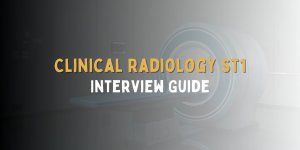
Published February 10, 2023 | Updated August 23, 2023
By Hassan Thwaini
Specialist Clinical Pharmacist Turned Writer honing close-to-a-decade of experience within the healthcare industry. Hassan has worked with a number of healthcare brands, from small independent clinics to world-leading pharmaceutical companies.
I can’t have been the only one who at some point during my eight-thousandth step up to the ward on the top floor has thought to myself “I’m done. I’m leaving this place. I’m booking a one-way ticket out of here.” followed by a pathetic attempt to reenact the life of Robinson Crusoe.
Just me?
Fair enough. But I can’t have been the only person who wanted this thing called work-life balance which we see so carelessly thrown about across various forms of social media without true meaning. Work-life balance as a medic simply meant that on a given day, you probably had time to head to the gym after work because you weren’t as exhausted. It’s not exactly the luxurious life falsely portrayed by the wonderful cast of Grey’s Anatomy, but I’ve found a way out – medical writing.
What is Medical Writing?
Medical writing is what we creatives call “the art of science”. In other words, it’s the process of distilling complicated medical jargon into easily palatable language tailored to a specific audience.
Types of Medical Writing
There are many different types of medical writing that one can pursue. These include, but are not limited to:
Medical Education
If you’ve ever Googled your symptoms and clicked on a link that takes you to an article which describes your symptoms and convinces you that you’re probably on the verge of imminent death, then you have a basic understanding of what one aspect of medical education writing is. This style of writing is otherwise known as patient-facing-content writing (not officially, just literally). Its premise is to educate the public about various diseases and, when possible, signposting to appropriate help should that be necessary.
Medical writing in education can also be physician-facing. Continuing Medical Education (CME) is the activities which medical professionals undergo to keep up to date with the latest advances in compliance, regulations, and developing areas in their field. As a medical writer, you could be asked to summarise various topics aimed at healthcare professionals in the form of articles, brochures, slide decks, and much, much more.
Medical Copywriting
Those probiotics you take every day were chosen for a reason, with that reason being the branding was on point (or they were the cheapest in the shop). Medical copywriting is the skill you can thank for convincing you to make that purchase. Medical copywriters research medical data attributed to a product, service, or establishment offering a service, and translate said data into language that’s accessible to the public.
Regulatory Medical Writing
If you’re to watch television in the United States of America or New Zealand, you’d probably come across an advert for a prescription drug that highlights how wonderful that drug is. In all other countries in the world, direct advertising of prescription drugs to the public is illegal.
Medical writers working in healthcare marketing have to abide by several regulatory boards (think of them as the GMC of medical writing) when producing such material for pharmaceutical companies. Regulatory writing roles involve the making of promotional documents for pharma products, such as leaflets, articles, and sales aids that go out to healthcare professionals (those presentations brought upon you by a pharmaceutical sales rep amidst your overpopulated waiting room). Regulatory roles can also be in-house which include curating necessary clinical trial protocol documents and standard operating procedures to facilitate clinical processes.
There’s a whole world of medical writing out there with far more careers than the three mentioned above. It’s up to you to research the various aspects to see which one resonates best with the style of writing you wish to pursue. For example, medical journalism is another path you may want to peek into.
Medical writing is also a career which can be pursued remotely, giving you the option to travel across the world as either a digital nomad or on “working holidays“. It might be something that you can pursue at the same time as performing a low-workload job (such as working on an oil rig).
The Scenic Route to Becoming a Medical Writer
Getting into medical writing as a healthcare professional can be profoundly easy. You can do an online course over the course of a few weeks that’ll teach you the fundamentals of all things medical writing so you can start your journey as a medical writer.
Or it can be long-winded, as I’ve experienced. I’m a specialist surgical pharmacist, and I loved my job. Unfortunately, I had to get into medical writing the unconventional way – by necessity other than by choice. I was stuck abroad during the pandemic and selling over-the-counter Ritalin in a tropical island didn’t quite motivate me to translate my qualifications overseas. Instead, I found medical writing.
I started out writing for small brands for literally little to nothing. It took months before I was able to find semi-permanent work that paid me something relatively decent. I had to do my own research and identify what it took to be a good medical writer before I was able to finally start landing decent clients who commissioned good work for great pay.
And today, three years on, I’m employed by a healthcare marketing agency. My job entails me producing promotional material for some of the world’s biggest pharmaceutical companies. I also freelance on the side (it’s like locuming but I can do it in the bathtub if I was feeling particularly daring). And, lastly, I’ve set up a medical writing education platform, Write Clinic, with my wonderful business partner and fellow pharmacist-turned-medical writer, Virginia Chachati.

How to Get Into Medical Writing Quickly
Write Clinic successfully launched its first introductory medical writing course for healthcare professionals – the Fundamentals of Medical Writing Course – on February 1st 2023. The premise of the course is to provide healthcare professionals and medical students with the opportunity to learn a new lucrative skill that can prove to be significantly beneficial financially and socially.
We’re here to help you replace your locum shifts with lounge-based stints. The course aims to teach you about the various types of medical writing in great detail, and provide you with the materials to help you:
Sounds pretty good, doesn’t it? The course, which we have worked terribly hard to produce is available on-demand and for lifetime access. You can undergo all 300-plus modules at your own time and pace, and you can even ask us questions whenever you want. Or take a small chunk of the course at a fraction of the price with our mini-courses for specific aspects of becoming a medical writer.












